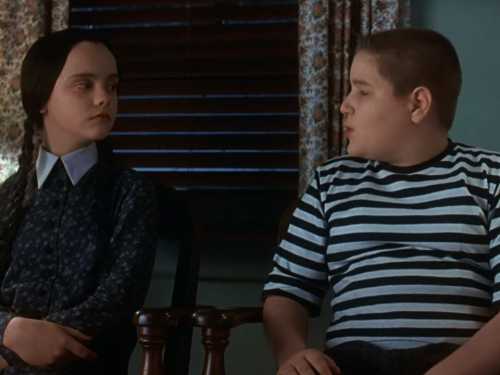
“Since my marriage I find all women attractive…. I am curious about their lives even if they teach me nothing new.” So explains Frédéric, the protagonist of French director Éric Rohmer’s 1972 film Love in the Afternoon, the last in his “Six Moral Tales” series, which continues to earn accolades for its racy storylines and philosophic depth. The finale, which features several famous French models (and one English one) is widely recognized as the best of the six, and is almost certainly the most provocative, though not for the reasons you might think.
Frédéric is a successful lawyer who lives in a suburb of Paris. He and his pretty wife, who teaches English and is working on her dissertation, have a little girl and are expecting another child. Yet his conventional middle-class life is not fulfilling. “I feel marriage is hemming me in, cutting me off, and I want to escape,” Frédéric complains. “The prospect of quiet happiness stretching indefinitely before me depresses me.”
Advertisement
He imagines alternative lives with other women he spies in public, even concocting a ridiculous daydream in which an amulet he wears makes him irresistible, bending women’s wills to his own (he admits he has no clue how to seduce a woman). He casually flirts with the two attractive young secretaries at his firm. He takes pleasure in repartee with a beautiful employee at a clothing shop who helps him try on a shirt in the privacy of a men’s dressing room.
There is an all-consuming character to Frédéric’s longings. He is frustrated by the “constant yet fleeting presence of women whom I’m certain I’ll never see again…. I feel their seductive power.” He wishes he could stop women on the street. “I dream that I actually possess them all.”
Frédéric’s desires seem to bespeak a deeper tension. “I feel my life passing me by,” he observes. He yearns to be taken out of the present, always choosing a book over a newspaper on the train, to distract himself from his boring bourgeois existence.
All of this changes when Chloé, a former girlfriend of his best friend, unexpectedly arrives at his office after years abroad. Chloé is a sometime model, though her appearance is not so much beautiful as striking. She’s found work in Paris as a bartender, though she suggests Frédéric employ her. When he demurs, she is caustic and cruel, and soon departs.
Yet she calls him later and asks to get together “as soon as possible.” So begins what becomes an increasingly intense emotional affair. Chloé mocks Frédéric for his conventional lifestyle. “Very bourgeois” she chides. (Though, interestingly, it’s also clear she’s deeply unhappy in her single life, one defined by emotional detachment and careless sexual dalliances).
Advertisement
What was once an obsession of the imagination becomes for Frédéric a reality. He adjusts his work schedule to accommodate meeting with Chloé, and doesn’t tell his wife about her. “I needn’t account for every thought, word, and deed,” he declares in self-defense. Chloé constantly reels him, telling him that she needs him, that everything goes well when he’s around. “You’re the only thing that makes life bearable,” she divulges. Then she’ll disappear, sometimes for a week, sometimes longer. She draws him into her orbit, relentlessly gauging the strength of her influence over him. When she does appear, he confesses: “It refreshes me to see you…. I’ve never talked so much to someone.”
Love in the Afternoon is a mature story, and not in the pornographic sense. It portrays what is so frustratingly common in conjugal love: what was thought to be the good life slowly, perhaps imperceptibly, descends into dullness and bitterness. The ennui prods its dissatisfied victims to pine for new emotional and sexual horizons. Upon such sinking sands, marriages collapse.
Frédéric, for all his flaws, is an admirable man. He works hard to provide for his family, cherishes his wife, and loves his children. He does not want to cheat on his wife of three years. When Chloé at one point suggests Frédéric sleep with his secretaries, he flatly refuses. “For me, love is adventure…. I don’t like office romance.” He has a conscience. Once while out shopping with Chloé he asks: “What would my wife say if she saw us?”
And that’s the rub. Though Frédéric seems to appreciate it only inchoately, his decisions affect not only his happiness, but that of his wife and children. One might even say that upon his choice—to be faithful or unfaithful—rests not only the happiness of his immediate family, but society itself. For a civilization defined by the perfidy of lovers and parents is one that is eroding, breeding its betrayed progeny on cynicism, outrage, and ultimately revenge.
In 2019, Pew found that of 130 nations surveyed, America, by a very large margin, had the greatest number of fatherless homes. “The U.S. has the world’s highest rate of children living in single-parent households. Almost a quarter of U.S. children under the age of 18 live with one parent and no other adults (23%), more than three times the share of children around the world who do so (7%),” the survey observed. Is it then any wonder that our youth are so easily seduced into an outraged, often violent activism, despising their forebears? Entire generations of Americans have been betrayed by fathers, who, put bluntly, often are hedonistic cowards.
Subscribe Today Get weekly emails in your inbox Email Address:
“People are ugly and they live ugly lives,” opines Chloé. Those are the words of someone bruised and broken, likely by the men who were charged with loving and protecting her.
“I give people pleasure,” she says, expressing her libertine worldview. For Chloé, happiness is understood only in the immediate, sensual sense. Eudaimonia, that ancient Aristotelian concept of happiness as seeking (and securing) good for its own sake, is lost to her. Whatever remnant of it remains within the soul of Frédéric, she aims to excise and crush under the weight of her naked body.
Fifty years removed from one of Rohmer’s cinematic triumphs (of which there are many), the challenge for men—and women—is still very much the same. Will we choose the oft-scorned norms of monogamous relationships and parenthood, or the transient path of “self-realization”? The latter, if we’re honest, is little more than self-justifying psychobabble intended to cloak our vanity and hedonism. To choose the right course, we must identify how transcendent, eternal truths intersect with our sometimes unexciting, even frustrating experiences. The former can give the latter meaning, and in time redeem them. “Some element of mystery is essential for living with someone,” Frédéric argues. Perhaps in perceiving the wondrous mystery in our spouses and children lies an answer to the problem.
Advertisement
Sourse: theamericanconservative.com






